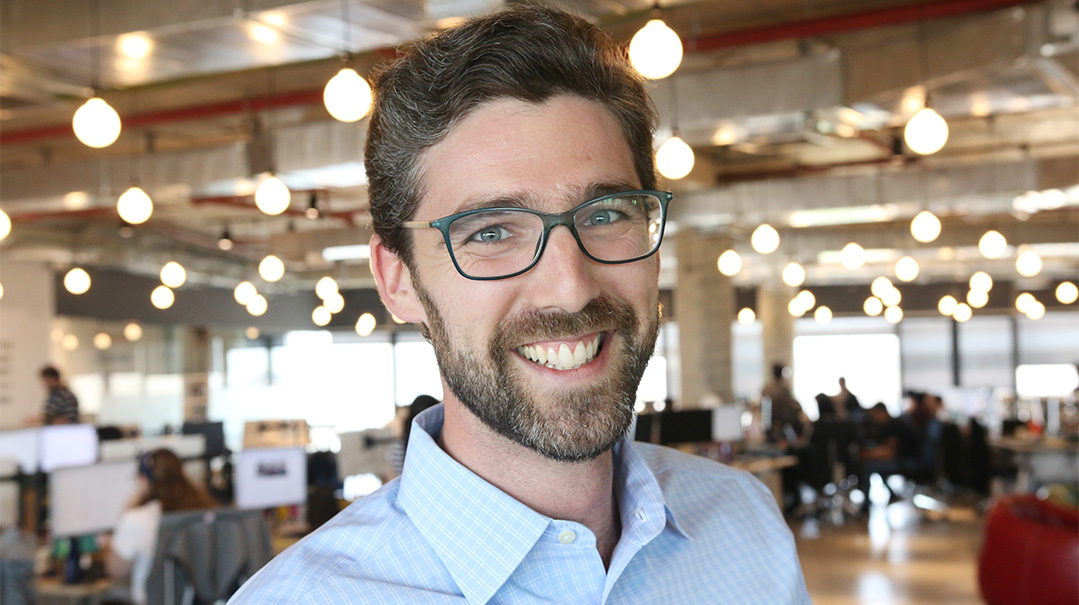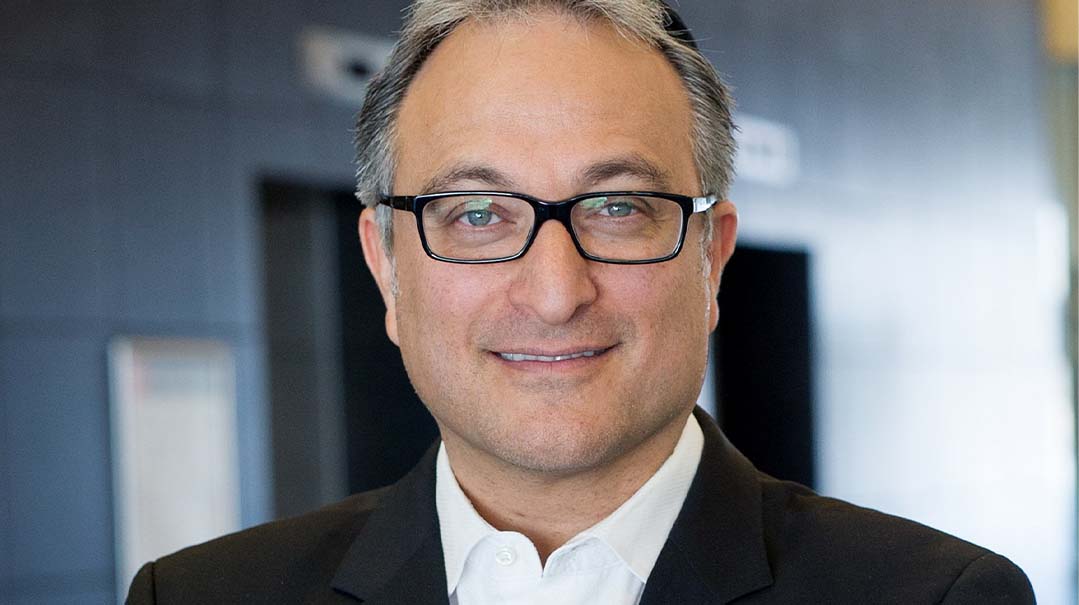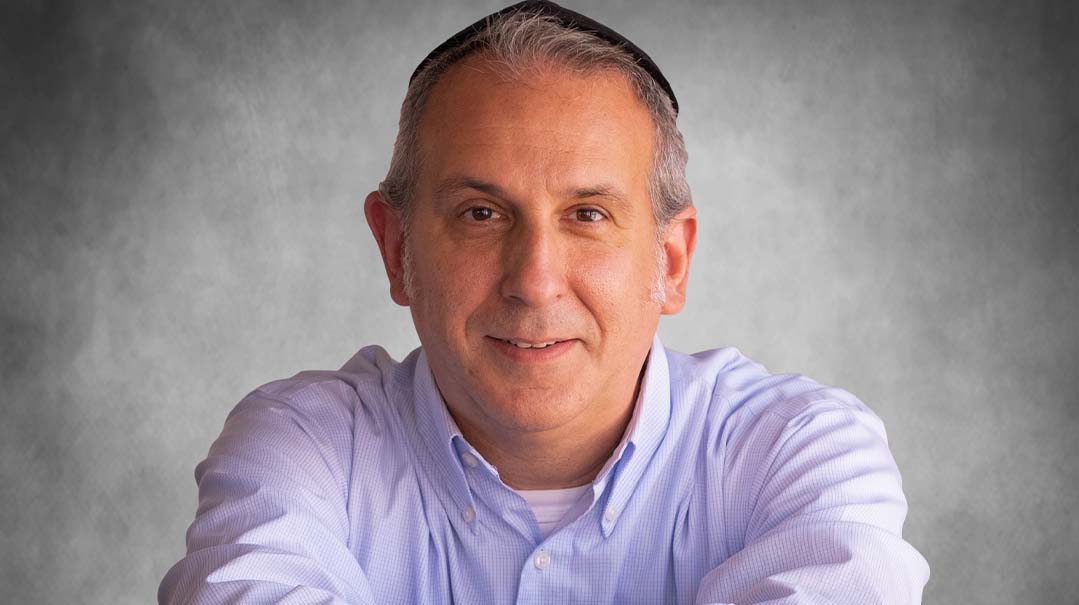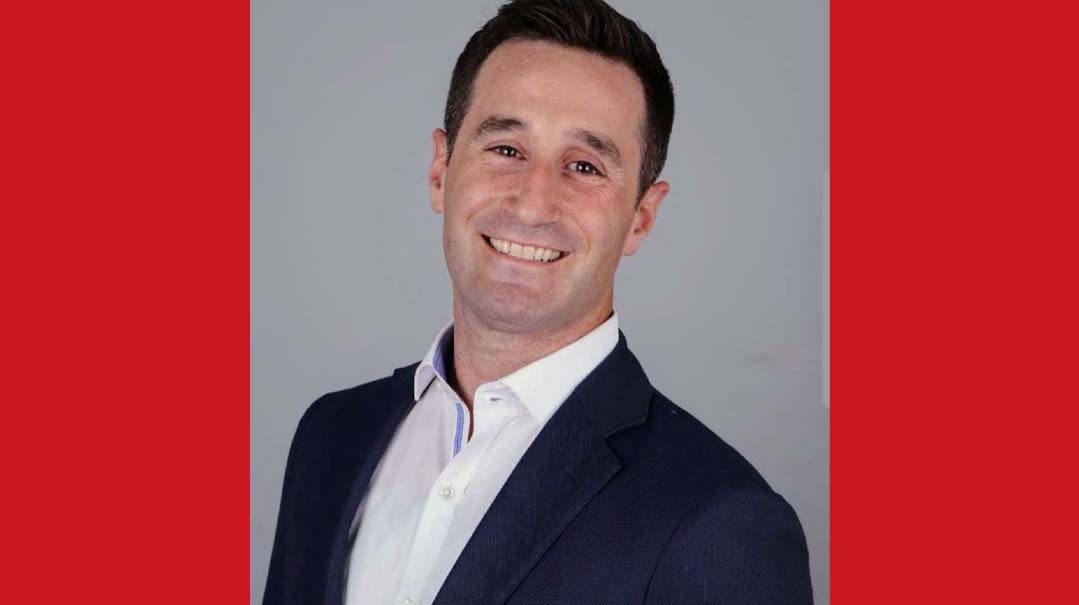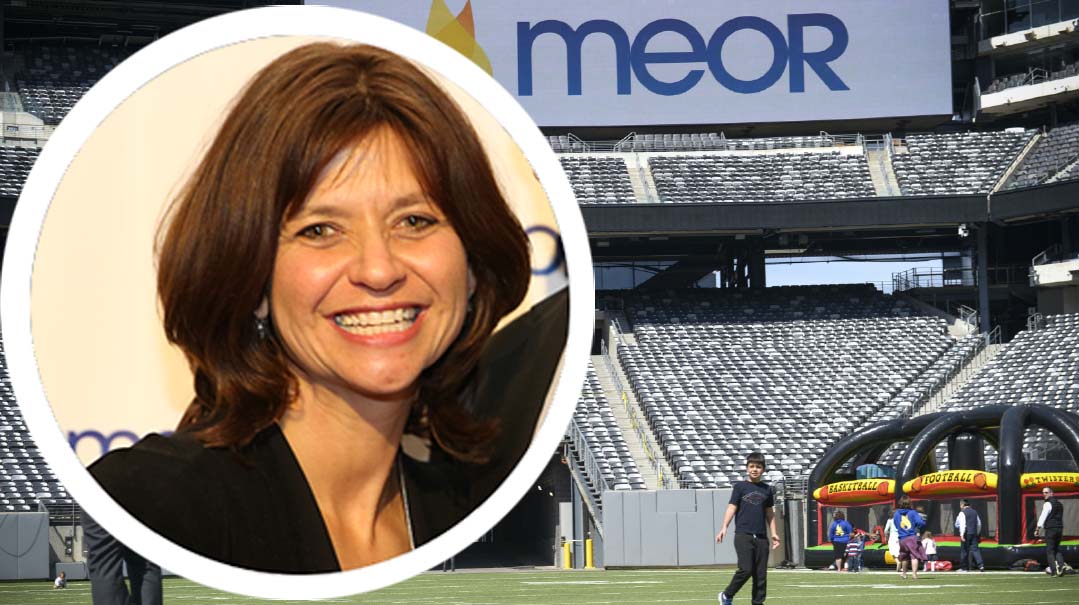Work/Life Solutions with Sahar Haluzy

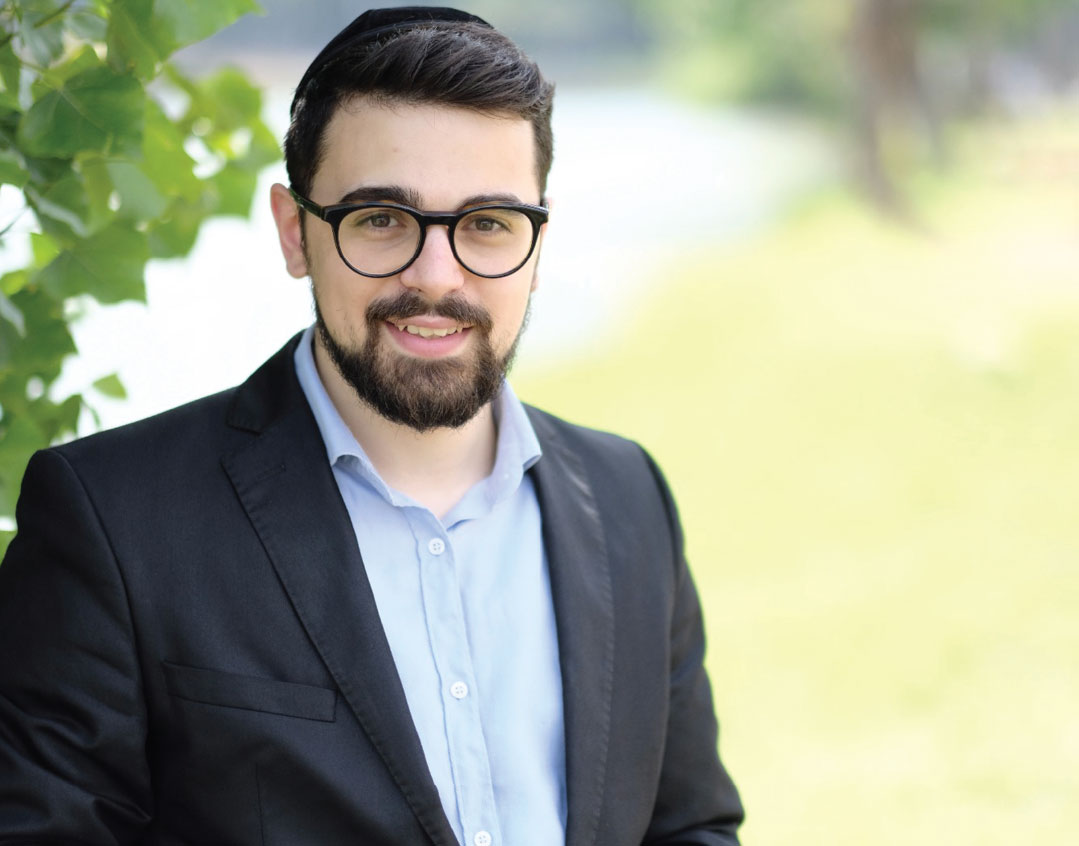
Who
Sahar Haluzy, enterprise consultant at Bringg
What
When we think of e-commerce and shipping, we typically think of Amazon. Then there’s Bringg, a promising Israeli start-up that built last-mile logistics and other delivery features, enabling businesses to offer efficient, tech-fueled delivery services of their own. Bringg raised $55 million from strategic investors, including Coca-Cola, Salesforce, and Siemens, and works with large enterprise customers, such as Walmart.
Where
Born and raised in Munich, Germany, Sahar speaks five languages and played professional soccer. He moved to Los Angeles in his early twenties to pursue his music career, then made aliyah to Israel after becoming a baal teshuvah. He and his wife and baby boy live in Be’er Yaakov.
Why
Sahar’s story is super unique and inspiring. With a rare talent for music, over a million views on YouTube, and invitations to perform at large music festivals across the US, Sahar was “living the American dream.” But philosophical questions gnawed at him, and when he experienced Torah and Shabbos, he made the life-altering choice to become fully observant. Now, in addition to his learning schedule, Jewish music, and kiruv, he leverages that same creativity, passion, and interpersonal skills in the business world, helping land massive deals for one of Israel’s promising start-ups. Wow!
1 of 9 What opportunities or personalities played a role in your career?
Growing up in a secular home in Munich, Germany, I had tremendous passion for music. I composed my own music and did some small gigs during my teenage years. My big break came when I was 17: I was invited to participate in the largest music competition in Germany, watched by more than five million people!
Though I was one of the youngest contestants, I was confident. I introduced myself: “Hi, my name is Sahar, I’m 17 years old, and I’m a proud Jew.” Can you imagine the feedback that triggered, especially in Germany? I was inundated with messages, some very offensive — just because of my religion … which I knew very little about. And that bothered me.
Nevertheless, I put those feelings aside and relocated to Los Angeles to build my music career. It was a very successful transition: My band and I performed at well-known venues and I started recording with one of the best music producers in the world.
At the same time, I occasionally spent weekends with my observant uncle and his family in San Diego. Out of respect, I observed Shabbat while I was there. It was absolutely beautiful; it began to bring me closer to Judaism.
Miraculously, I also found that the more I committed to Shabbat and kashrus, the more positive changes I started seeing in my life, such as with health and finances. It was all making more sense… but there was still a blatant incongruity: my newfound passion for religious growth and my lifelong ambition for a secular music career.
I then received a message from my agent, a message I was waiting for and working toward my whole life: “You’re opening a massive music festival in September!” I couldn’t believe my ears! I was over the moon for a couple of days... until the questions began to overtake me.
A “random” search on the Internet led me to a video of Rabbi Amnon Yitzchak in Bnei Brak. Secular Jews were asking difficult questions (the same questions I had!) about Hashem, and Rabbi Amnon had a brilliant answer to every question. I began to binge-watch all of his shiurim, and after a month or two, all my burning questions were resolved.
The most inspiring sentence he said was: “When somebody knows the truth, it becomes impossible for him to live a lie.” It was really like he was talking to me through the screen.
Now what? I asked myself.
Suddenly, the music project became less important to me. Inexplicably, I didn’t feel this burning urge anymore to perform at the music festival, to open for some of the most famous secular performers. I just wanted to be close to Hashem.
It was one of the hardest decisions in my life.
This experience led me to Israel, where together with my wife and baby, I now lead a fully religious life. What did I do with my passion for creating music and performing on stage? First, I began an a cappella group where I sing Jewish songs; and second, I serve as a senior consultant to one of the most promising Israeli start-ups, where I lead sales and business development to the German market. I find that crafting sales pitches and closing deals gives me a similar adrenaline rush (and feeling of accomplishment) to singing onstage!
3 of 9 What do you do to relax, recharge, or simply have fun? How do you make time for that, and how often?
Working for a high-growth Israeli start-up, I find it difficult to relax. But I try to do it in three ways: Shabbat, Torah, and music.
I relax during my weekly Shabbat nap, I recharge during daily Torah studies, and I recharge through my music. I feel especially passionate about the message of my a capella group, Beatdos. We have singers from all Jewish backgrounds — chareidi, dati-leumi, and chiloni-secular — to emphasize achdut am Yisrael, to show we can be one, together!
7 of 9 If you were asked to deliver a TED Talk that would be watched by 50 million people, what topic would you choose to speak about? Why?
The balance between business success and enjoying every day.
Let me give you some background: My company offers an end-to-end solution for the last-mile delivery — that final transport to the end destination — and we’ve been growing tremendously. Because all enterprises now know: adapt to the current market conditions, or Amazon will eat you alive.
As such, our work is very fast-paced, doing several things at the same time (some of which aren’t at all in our job descriptions). Hyper-growth and working around the clock is emphasized… but it makes me wonder: If we just zoomed out from the picture and saw the whole frame, would we make these same daily decisions?
I’d share the famous tale of a fisherman, who is sitting all relaxed in his little ship in the middle of the ocean. Suddenly, a bigger ship passes and the captain calls out to the fisherman, “What are you doing?”
The fisherman answers, “Waiting for a fish to get caught.”
The captain says, “You know, if you bought a net, you’d catch many more fish.”
The fisherman responds, “And then?”
Captain: “And then you could buy a bigger ship and have a crew fishing with you.”
Fisherman: “Okay, and then?”
Captain: “Then you could afford to take a break and let others work for you.”
Fisherman: “And then?”
Captain: “And then you could lean back and enjoy the sound of the ocean while your fish is getting caught.”
The fisherman answers, “And what exactly am I doing now?”
Yes, work is hard; it’s difficult to earn a living. But as we grow in our careers, we need to ask whether we’re sacrificing our current realities (which may be our dream) for an elusive, eventual goal that may never happen… or ironically bring us back to where we are today.
8 of 9 Can you share a time when you had to navigate the tension between your deepest values and the business world?
When I meet senior executives in leading companies around the world, I sometimes ask myself: How will I explain to all those women attending the meeting that I can’t shake their hands, particularly after my colleagues already have? Won’t I look like an alien? I know it sounds hilarious, but sometimes it becomes hard to manage.
My trick? Off the bat, I say I’m religious and therefore cannot shake their hands but I’m very pleased to meet them. So basically preempting any backlash by apologizing first with the “religious reasons” explanation and throwing a positive sentence to overcome the awkwardness.
9 of 9 If you were advising a young man/woman hoping to launch a career as an entrepreneur, which “dos” and “don’ts” would you share?
1. Learn from your mistakes and know it’s okay to fail. As it says in Mishlei: “Seven times a tzaddik falls and stands up again.” Why did he become a tzaddik? Because he stood up after failure. Failure is the key to success. The one who walks in another’s footprints cannot leave his own behind. Don’t be afraid to start all over again. Good things take time to happen. As the Gemara says: “Kol hahatchalot kashot — All beginnings are hard.”
2. Don’t get carried away too much by everything around you. Take the time to understand and observe what’s happening around you. If we really observe, we’ll see the beauty in all of our circumstances. We’ll see that everything happens for a reason.
3) Most importantly, in both your personal and professional lives, never be ashamed to be a proud Jew!
Originally featured in Mishpacha, Issue 756. Moe is the Founder & CEO of Winfluencers, an early-stage startup that empowers micro-influencers to monetize their passion.Previously, he was the Head of BizDev for Hometalk, Strategy Consultant for Deloitte, and Regional Director for the Lauder Foundation. He holds an MBA and semichah, and published his first book, The Gift of Stuttering (Mosaica Press, 2016). He also teaches a daf yomi shiur, produces inspirational videos for Aish.com, and gives lectures to audiences worldwide. Moe lives in Ramat Beit Shemesh with his wife and children.
Oops! We could not locate your form.
